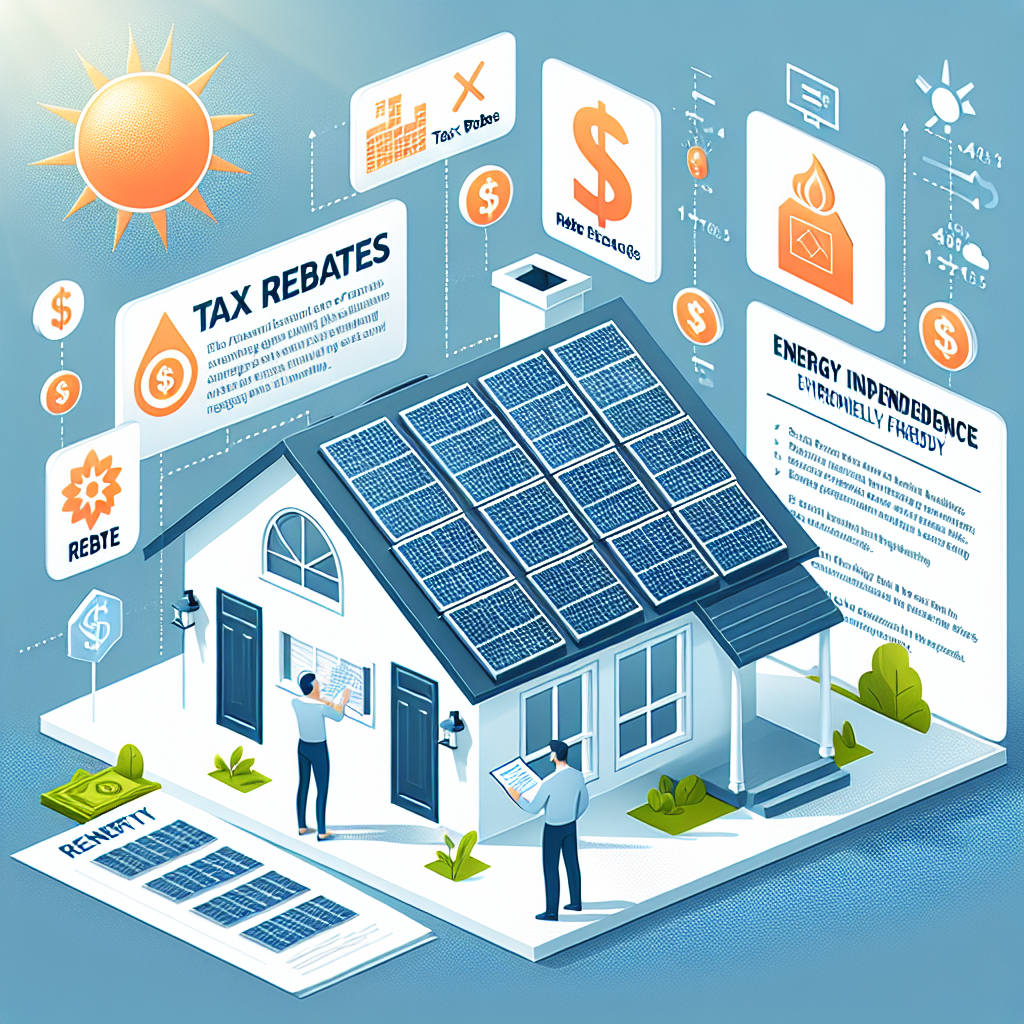-
Table of Contents
Solar Energy Tax Incentives and Rebates

As the world continues to grapple with the effects of climate change, the need for renewable energy solutions has never been more critical. Solar power, in particular, has emerged as a viable and sustainable alternative to traditional energy sources. In Australia, the government has implemented various tax incentives and rebates to encourage homeowners, businesses, and rural residents to transition to solar energy. This article explores these incentives and how they can benefit you.
Understanding Solar Energy Tax Incentives
One of the significant barriers to the adoption of solar power for homes in Australia has been the initial cost of installation. However, the Australian government has introduced several tax incentives to offset these costs. These incentives are designed to make solar panels and other renewable energy solutions more affordable for the average Australian.
Small-scale Renewable Energy Scheme (SRES)
The Small-scale Renewable Energy Scheme (SRES) is a federal initiative that provides financial incentives for individuals and small businesses to install eligible small-scale renewable energy systems, including solar panel systems, solar water heaters, and heat pump systems. Under the SRES, eligible parties can create small-scale technology certificates (STCs) for every megawatt-hour of renewable energy they generate or displace. These STCs can then be sold or assigned to recoup a portion of the cost of purchasing and installing the system.
Feed-in Tariffs (FiTs)
Feed-in tariffs (FiTs) are another form of incentive offered by state and territory governments. Under a FiT scheme, you are paid a set rate for any excess electricity your solar panels generate and feed back into the grid. The rate you receive varies depending on your location and the specific terms of your electricity retailer’s FiT program.
Instant Asset Write-Off
For businesses, the Instant Asset Write-Off scheme allows them to claim a deduction for the business portion of an eligible asset in the year the asset is first used or installed ready for use. Solar panels, inverters, and batteries can be considered eligible assets under this scheme, making it a valuable incentive for businesses looking to transition to solar power.
Conclusion
With these incentives in place, the transition to solar power has become more affordable for many Australians. Whether you’re a homeowner, a business owner, or a rural resident, there’s never been a better time to explore the benefits of solar energy. At Yoursolar.store, we offer premium solar panels, inverters, and batteries, along with expert installation services. Contact us today to learn more about how we can help you harness the power of the sun.
References
[Insert references here]
Disclaimer: This article is intended to provide a general understanding of solar energy tax incentives and rebates in Australia. It does not constitute financial advice. Please consult with a financial advisor or tax professional for advice tailored to your specific circumstances.

